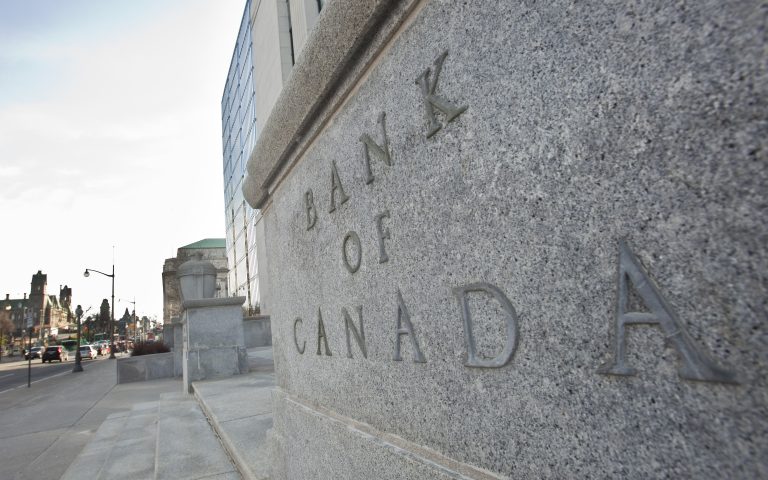Canada assures that its financial institutions are “stable and resilient” following the collapse of California-based Silicon Valley Bank (SVB). Meanwhile, Canada’s banking regulator is reportedly taking steps toward carrying out daily check-ins with banks in the country to monitor their liquidity.
The Deputy Prime Minister and Minister of Finance Chrystia Freeland said in a statement on March 14 that Canada’s financial institutions are “stable and resilient” after convening a virtual meeting with provincial and territorial finance ministers to discuss the current state of Canada’s financial system and “ongoing developments” in the wake of SVB’s collapse.
Also present at the meeting were Canada’s Superintendent of Financial Institutions, Peter Routledge, and the Bank of Canada’s Senior Deputy Governor, Carolyn Rogers. Prior to this meeting, Freeland held several discussions with other leaders of national and regional Canadian financial institutions on the same topic.

Silicon Valley Bank was the 16th largest bank in the United States, primarily catering to technology workers and venture capital-backed companies, including some of the industry’s most recognizable brands. The collapse of the bank occurred last Friday, as fearful depositors rapidly withdrew billions of dollars within a matter of hours, prompting urgent action from U.S. banking regulators who were forced to shut it down.
Seizure of Canadian branch
SVB operates in multiple countries and also had operations in Canada as a foreign bank branch based in Toronto. The Canadian branch primarily lent to corporate clients and did not hold any commercial or individual deposits in Canada, according to Canada’s regulator — the Office of the Superintendent of Financial Institutions (OSFI) — which supervises SVB’s Canadian branch.
Success
You are now signed up for our newsletter
Success
Check your email to complete sign up
Following the shutdown of SVB in California, OSFI announced on March 12 the temporary seizure of the Canadian branch’s assets. “By taking temporary control of the Canadian branch of Silicon Valley Bank, we are acting to protect the rights and interests of the branch’s creditors,” said Routledge in the statement.
The superintendent has also notified an intention to seek permanent control of the assets and is requesting the Attorney General of Canada, David Lametti, to apply for a winding-up order.
Strengthening supervision
The collapse of SVB, which is now the second-largest in U.S. history after Washington Mutual’s collapse in 2008, has created widespread uncertainty about potential ripple effects, although U.S. Treasury Secretary Janet Yellen has reassured that there will be no domino effect on the U.S. banking industry
OSFI said it has closely monitored the Canadian branch since the onset of SVB’s difficulties. It further stated that consistent with globally accepted international Basel III standards, it “continues to undertake diligent supervision of federally regulated banks in Canada, including robust requirements for capital and liquidity adequacy.”
“As risks change, so do the frequency and intensity of these efforts. Such adjustments reflect a prudent approach to performance of its supervisory function,” the regulator wrote on March 14.
“As part of this work, we are regularly in contact with the financial institutions we supervise. Under the OSFI Act, we are bound by legislation and regulation to keep the information we gather confidential.”
The Globe and Mail reported on March 14 that OSFI is now working toward establishing daily check-ins with domestic banks that will allow it to monitor the banks’ liquidity, according to two unnamed sources with knowledge of OSFI’s decision.
Soliciting clients
As per a report from The Globe on March 15, Canadian banks are quietly seeking technology clients of SVB as the sale process of the U.S.-based bank remains at a standstill. Among the banks that are reaching out to SVB clients are the Bank of Montreal (BMO), Royal Bank of Canada (RBC), and Canadian Imperial Bank of Commerce (CIBC).
For instance, BMO has presented a marketing pitch emphasizing its safety and size in comparison to U.S. banks. They have also showcased their range of products designed for venture capital firms and tech companies. Meanwhile, RBC and CIBC are subtly promoting their availability to help clients who had banked with SVB and are now searching for a new banking partner. According to industry sources, both banks are doing so cautiously, to avoid appearing too opportunistic.
The Globe report states that RBC is offering a pre-approved special deposit package to companies affected by SVB’s closing. Additionally, RBC is willing to assume some of the term loans previously offered by SVB to its clients. The bank is also extending capital call accounts to venture capitalist clients of SVB who had previously used these accounts to fund their investments.













